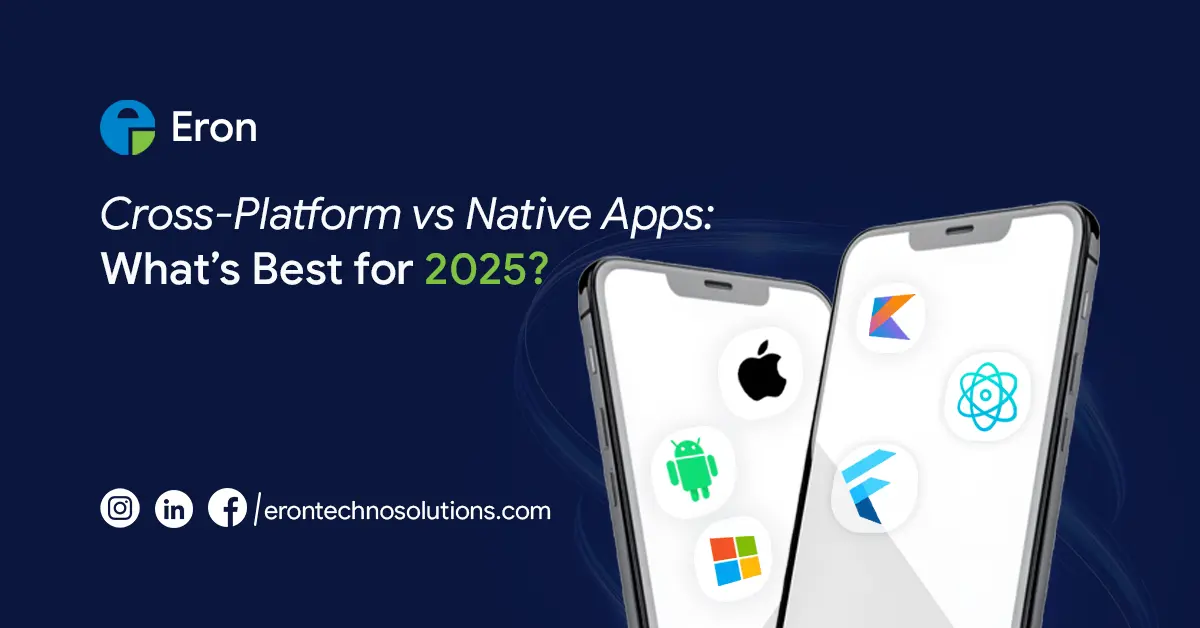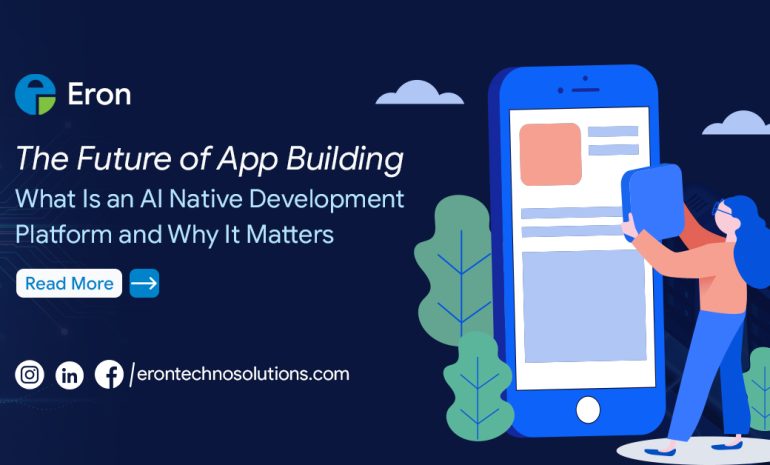The mobile app market is booming in 2025, and businesses are constantly looking for the best development approach to deliver exceptional user experiences. One of the most debated topics among developers and business owners is Cross-Platform vs Native apps. Choosing the right approach can impact cost, performance, scalability, and user satisfaction.
This guide breaks down both approaches, their pros and cons, and helps you decide what’s best for your business in 2025.

What Are Native Apps?
Native apps are developed specifically for a single platform, such as iOS or Android, using platform-specific programming languages like Swift (iOS) or Kotlin/Java (Android). They are installed directly on devices and can fully leverage hardware features like cameras, GPS, and sensors.

Pros of Native Apps
- High Performance: Native apps are faster and more responsive, ideal for complex functionalities.
- Better User Experience: They follow platform-specific UI/UX guidelines, offering intuitive interactions.
- Full Hardware Access: Native apps can fully utilize device features like push notifications, camera, sensors, and AR capabilities.
- Secure: Native development offers better data security and compliance with platform standards.
Cons of Native Apps
- Higher Development Cost: Developing separate apps for iOS and Android increases cost and time.
- Maintenance Challenges: Updates and bug fixes must be implemented separately for each platform.
What Are Cross-Platform Apps?
Cross-platform apps are developed using frameworks like Flutter, React Native, Xamarin, or Ionic, allowing a single codebase to run on multiple platforms. They are designed to reduce development time and cost while reaching a broader audience.

Pros of Cross-Platform Apps
- Faster Development: One codebase works for both iOS and Android, speeding up the development process.
- Cost-Effective: Lower development and maintenance costs compared to native apps.
- Consistent UI/UX: Frameworks provide tools to maintain uniform design across platforms.
- Wider Reach: Launching on multiple platforms simultaneously helps reach more users.
Cons of Cross-Platform Apps
- Performance Limitations: Slightly slower than native apps, especially for graphics-heavy applications.
- Limited Hardware Access: Some device features may not be fully supported or require extra plugins.
- Complex Debugging: Cross-platform frameworks may introduce additional layers of complexity in debugging.
Cross-Platform vs Native: Which One to Choose in 2025?
The choice depends on your business goals, budget, and app complexity.
| Factor | Native Apps | Cross-Platform Apps |
| Performance | Excellent | Good, slightly slower for heavy apps |
| User Experience (UX) | Platform-specific and smooth | Uniform but slightly less refined |
| Development Cost | Higher | Lower |
| Maintenance | Separate updates for each platform | Single codebase for all platforms |
| Time to Market | Longer | Faster |
| Hardware Integration | Full access | Limited (requires plugins) |
When to Choose Native
- Your app demands high performance or complex animations
- You need advanced hardware integration like AR/VR, IoT, or sensors
- You want the best user experience for each platform
When to Choose Cross-Platform
- You have a tight budget and timeline
- Your app requires basic to moderate functionality
- You want to launch on multiple platforms simultaneously
Emerging Trends in 2025
- Flutter and React Native Dominance: Cross-platform frameworks are getting faster and more feature-rich, bridging the performance gap with native apps.
- AI-Powered Apps: Both native and cross-platform apps are integrating AI for personalized experiences.
- 5G and Cloud Integration: Faster networks and cloud computing are enabling smooth cross-platform experiences even for heavy apps.
- Progressive Web Apps (PWA): PWAs are gaining traction as lightweight alternatives, complementing cross-platform strategies.
Conclusion
IIn 2025, there is no one-size-fits-all answer.
- Choose native if you prioritize performance, UX, and hardware access.
- Choose cross-platform if your focus is cost, speed, and wide audience reach.
For businesses aiming to scale quickly and stay competitive, understanding your app’s goals, audience, and complexity is key to making the right choice.
At Eron Techno Solutions Pvt Ltd, we specialize in both native and cross-platform mobile app development, helping businesses build high-performance, user-friendly apps tailored to their needs. Explore our services at https://erontechnosolutions.com/ to get started today.


